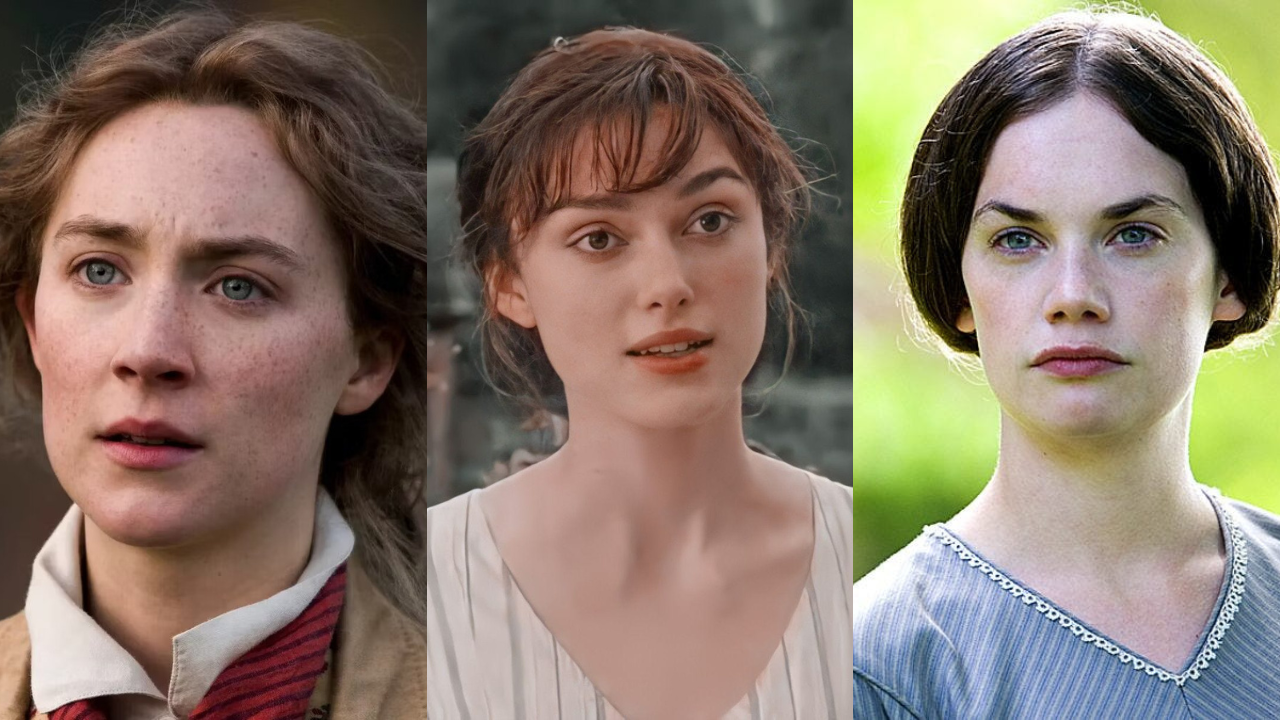
In classic literature, where societal norms and gender roles were often strictly delineated, some female characters stand out not just for their presence but for how they shattered the stereotypes of their times. These characters, crafted with depth and nuance, not only enriched the narratives they were part of but also left a lasting impact on readers and the trajectory of literary history. This article delves into ten iconic female characters who, through their resilience, intelligence, and defiance, broke the moulds set for them by their societal contexts.
1. Elizabeth Bennet in Pride and Prejudice by Jane Austen
Elizabeth Bennet, the protagonist of Jane Austen’s ‘Pride and Prejudice,’ is celebrated for her wit, moral integrity, and refusal to conform to societal pressures of marrying for convenience or financial security. In an era where a woman’s primary ambition was expected to be a prosperous marriage, Elizabeth’s desire for a partner who meets her standards of intelligence and character was revolutionary. Her assertive rejection of Mr. Collins and Mr. Darcy’s initial proposal underscores her autonomy and her unwillingness to compromise on respect and love, setting a new precedent for female characters in literature.
2. Jane Eyre in Jane Eyre by Charlotte Brontë
Charlotte Brontë’s ‘Jane Eyre’ presents a heroine who is remarkable for her time due to her strong sense of self-worth and her quest for personal freedom. Despite her plain appearance and modest position, Jane challenges the status quo by asserting her intellectual and emotional equality to men. Her moral and spiritual convictions guide her decisions, not societal expectations or financial dependence. Jane Eyre’s journey is a testament to the strength of character and the pursuit of happiness on one’s own terms.
3. Hester Prynne in The Scarlet Letter by Nathaniel Hawthorne
In ‘The Scarlet Letter,’ Hester Prynne is punished for adultery in a puritanical society, yet she emerges as a symbol of strength and resilience. Hester’s refusal to name her lover and her ability to carve out a life of dignity and respect, despite being ostracized, showcases her independence and moral fortitude. Her character challenges the societal norms surrounding sin, punishment, and redemption, making her a pioneering figure in the exploration of complex female experiences.
4. Jo March in Little Women by Louisa May Alcott
Jo March is a spirited and unconventional character whose ambitions extend beyond the domestic sphere that was the expected focus for women of her time. Her determination to pursue a career as a writer and her reluctance to marry for convenience challenge the traditional gender roles and expectations of women’s dependency on marriage for financial security. Jo’s independence, ambition, and unapologetic tomboyishness make her a beacon for female autonomy and self-expression.
5. Edna Pontellier in The Awakening by Kate Chopin
Kate Chopin’s ‘The Awakening’ was groundbreaking for its exploration of female sexuality and the suffocating constraints of marriage and motherhood. Edna Pontellier’s awakening to her desires and needs as an individual, separate from her roles as wife and mother, was a bold examination of women’s independence and sexual autonomy at the turn of the 20th century. Her pursuit of personal freedom, even in the face of societal condemnation, marks Edna as a pioneering character in feminist literature.
6. Nora Helmer in A Doll’s House by Henrik Ibsen
Nora Helmer’s decision to leave her husband and children at the end of Henrik Ibsen’s ‘A Doll’s House’ was a radical departure from the traditional roles women were expected to play. Nora’s journey from a seemingly naïve and submissive housewife to a woman determined to explore her own identity and capabilities outside the confines of a marriage challenged the sacrosanct institution of marriage and the societal expectation for women to find fulfilment solely in the roles of wife and mother.
7. Tess Durbeyfield in Tess of the d’Urbervilles by Thomas Hardy
Thomas Hardy’s Tess is a complex character who defies the Victorian stereotype of the passive, pure woman doomed by a single mistake. Despite the injustices and abuses she endures, Tess remains resilient, dignified, and profoundly human. Her character challenges the moral double standards of her time and critiques societal attitudes towards women’s sexuality, purity, and worth.
8. Anna Karenina in Anna Karenina by Leo Tolstoy
Anna Karenina is a tragic yet strikingly modern figure in her quest for love and fulfilment outside the confines of a stifling marriage. Tolstoy crafts Anna as a deeply emotional, passionate, and vibrant woman who seeks to live her truth, even as it leads to her ostracization and downfall. Her struggle against the rigid societal norms and the consequences she faces speak volumes about the pressures and double standards imposed on women.
9. Antigone in Antigone by Sophocles
Although not a novel, the play ‘Antigone’ features one of the earliest and most powerful female protagonists in literature. Antigone’s defiance of King Creon to bury her brother according to divine law, against the king’s decree, showcases her moral courage, loyalty, and resistance against unjust authority. Her actions and determination challenge the traditional gender roles of her time, positioning her as a symbol of civil disobedience and feminist strength.
10. Lily Bart in The House of Mirth by Edith Wharton
Lily Bart, the protagonist of Edith Wharton’s ‘The House of Mirth,’ navigates the high society of early 20th-century New York, struggling against its materialistic values and the limited roles available to women. Her tragic decline from socialite to outcast underscores the consequences of societal and financial dependence placed on women. Lily’s awareness of her entrapment and her attempts to break free, despite the grave risks, highlight the critical examination of the societal expectations and the tragic plight of women in her time.
These characters, emerging from the minds of their creators, not only entertained but also provoked thought, challenged societal norms, and inspired generations. They serve as a testament to the power of literature to reflect and influence the changing dynamics of women’s roles in society, making their stories timeless.
